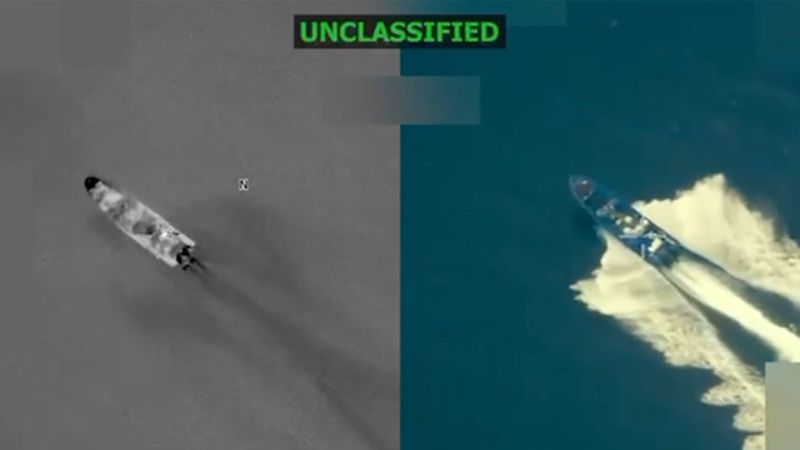## Escalation in U.S. Military Operations in the Caribbean: Targeting Drug Traffickers
In recent months, the U.S. military has undertaken significant and controversial operations in the Caribbean, marking a notable shift in its approach toward combating narcotics trafficking. This escalation includes multiple strikes against vessels suspected of involvement in drug trafficking, with at least one operation directly engaging a boat carrying Colombian nationals. These activities indicate an aggressive repositioning of military resources to counteract drug-related offenses in the region.
### Increasing Military Strikes
Reports have surfaced indicating that the U.S. military orchestrated at least five strikes on different boats in the Caribbean, each suspected of narcotics transportation. Most notably, a strike on September 19 targeted a vessel believed to be linked to Colombian terrorist organizations. The Pentagon has openly admitted that it lacked concrete intelligence on the occupants of the boat prior to the military engagement, raising concerns about the implications for due process and civilian safety in these operations.
### Shift in Military Strategy
The current campaign signifies a significant alteration in U.S. military strategy, suggesting a broader and more aggressive stance against drug trafficking groups than previously recognized. Insiders report that the Trump administration has developed a classified legal framework allowing lethal actions against designated cartels and suspected drug traffickers. This legal interpretation appears to empower the President to classify drug traffickers as enemy combatants, potentially bypassing traditional legal protections that safeguard individual rights.
### Diplomatic Tensions with Colombia
This military approach has sparked notable diplomatic tensions, particularly with Colombia. Colombian President Gustavo Petro has publicly expressed his concerns regarding the implications of the strikes. His remarks on social media suggested that if one of the boats was sunk in Dominican waters, it would imply complicity between U.S. and Dominican forces in the deaths of Colombian citizens. This statement underscores the regional repercussions of the U.S. military’s actions and raises questions about international accountability.
### Official U.S. Response
In response to queries regarding the military actions, a White House spokesperson emphasized that every strike has been aimed at recognized narcoterrorists believed to pose a threat to U.S. borders through narcotics trafficking. The spokesperson reinforced President Trump’s commitment to dismantling drug cartels, framing these military operations as essential to combating the drug-related violence plaguing the United States. This narrative aims to justify the strikes in the context of national security.
### Beyond the September Incident
President Petro’s criticisms extended beyond the September 19 strike, highlighting broader concerns regarding U.S. military actions in Latin America and the Caribbean as indicative of escalating aggression. Following the announcement of a fourth U.S. military strike—which, according to sources, may not have directly targeted Colombian nationals—the implications of these operations continue to invoke anxiety over regional sovereignty and enforceability of international law in modern military actions.
### Dismissal of Concerns
In the wake of these remarks, the White House described Petro’s assertions as “baseless,” calling for a retraction of his statements. Yet, the complex realities of these military strikes reveal a tangled web of military strategy, diplomatic relations, and the evolving nature of international law pertaining to military engagement in the fight against drug trafficking.
With both nations navigating these turbulent waters, the intersection of military action and diplomatic dialogue becomes increasingly critical as the region grapples with the multifaceted impacts of drug trafficking and counter-narcotics efforts.

